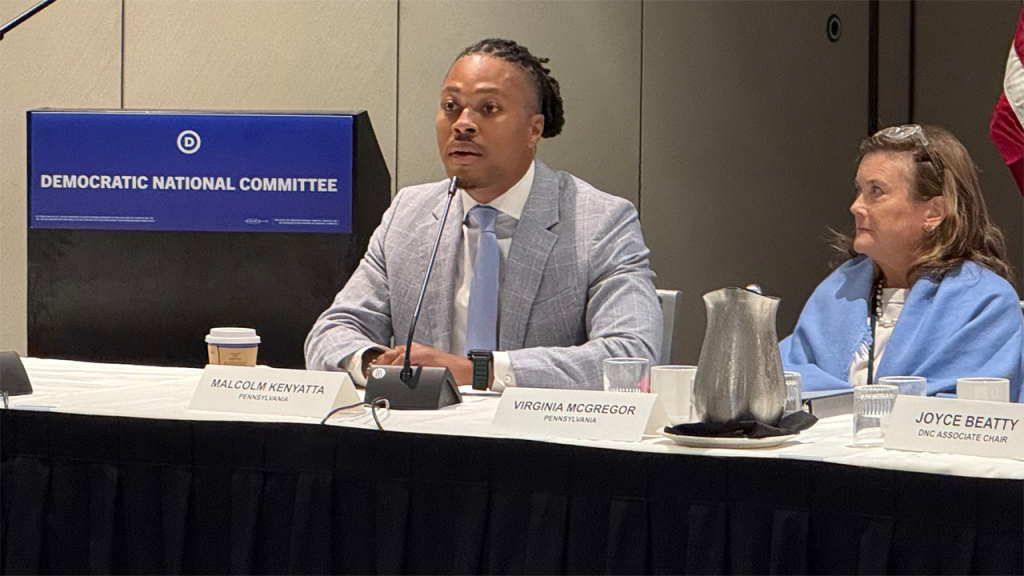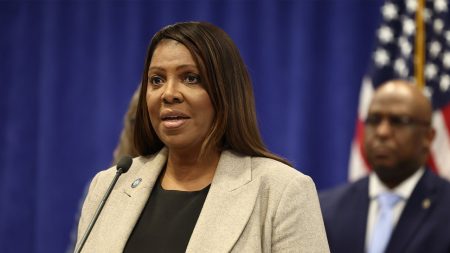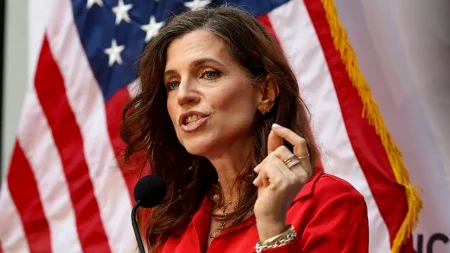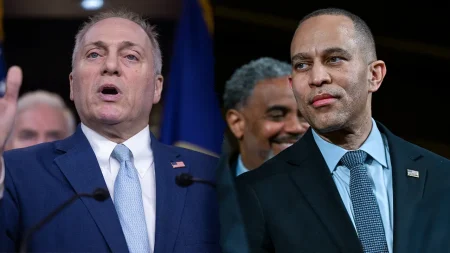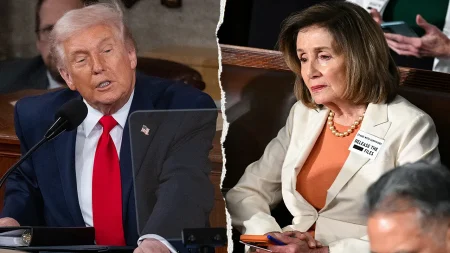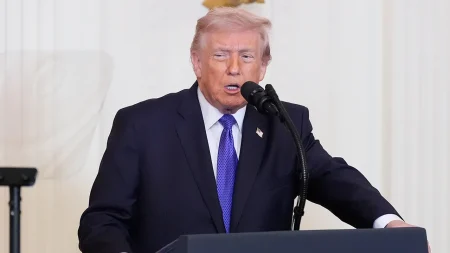Democrats Call for More Aggressive Approach Against Trump Administration
In a powerful gathering of Democratic National Committee (DNC) members in Minneapolis, party leaders urged for a more combative stance against the Trump administration’s agenda. With over 400 committee members representing all 50 states and seven territories, the summer meeting became a platform for Democrats to redefine their strategy moving forward. The call for a more assertive approach comes as the party faces significant challenges, including declining poll numbers and a substantial fundraising deficit compared to their Republican counterparts.
DNC Chair Ken Martin set the tone for the three-day meeting with strong rhetoric, describing President Trump as “a dictator-in-chief” and characterizing his second administration as “fascism dressed in a red tie.” Martin, referencing Democrats’ response to Republican efforts to redraw congressional districts ahead of the 2026 midterms, expressed frustration with the party’s traditional approach to politics. “I’m sick and tired of this Democratic Party bringing a pencil to a knife fight,” Martin declared to committee members, insisting that Democrats can no longer be “the only party that plays by the rules anymore.” This sentiment reflects growing impatience within the party ranks as they face aggressive Republican tactics across multiple political fronts.
Malcolm Kenyatta, a 35-year-old state lawmaker from Pennsylvania who was elected as DNC vice chair in February, has emerged as a prominent voice echoing this more combative stance. In a colorful analogy, Kenyatta described the political dynamic: “We’ve been playing checkers. They’re playing Grand Theft Auto. They’ve stolen their next car, and then running over the fire hydrant.” In an interview with Fox News Digital during the DNC meeting, Kenyatta emphasized that Democrats need to “engage in a level of fight, not power for power’s sake,” but because they understand “what’s at stake for working people and working families.” He drew a sharp contrast between the parties, claiming Democrats work “to make life better for workers” while Republicans prioritize billionaires, regardless of their rhetoric.
The Democratic leadership is attempting to reframe the political narrative by highlighting what they see as fundamental differences in governance philosophy. Kenyatta pointed to what he perceives as contrasting leadership styles, noting that Democrats “don’t have a leader that demands fealty, who throws up Kim Jong Un-style signs of himself around our nation’s capital.” This comparison seeks to position Democrats as the party of true democratic values, even as they grapple with internal challenges. However, the party faces significant obstacles as they work to rebuild after losing control of both the White House and Senate, while failing to recapture the House majority in recent elections. Perhaps most concerning for Democratic strategists is the party’s declining support among key demographic groups that have traditionally been part of their base.
The political landscape for Democrats has only grown more challenging in the ten months since their electoral setbacks. According to national polls, the party’s popularity continues to decline, reaching historic lows, with a particularly troubling erosion of support among younger voters. The DNC also faces a substantial fundraising disadvantage compared to the Republican National Committee, alongside worrying trends in party registration. Former RNC chair Michael Whatley criticized Democrats for moving “further and further and farther to the left,” claiming they are “walking away from Main Street” and embracing “left-wing radical woke policies.” He asserted that Democrats “haven’t learned a single thing from their election losses in 2024,” suggesting the party is out of touch with mainstream America.
Despite these challenges, Kenyatta maintains an optimistic outlook for the upcoming midterm elections. He believes Democrats can capitalize on the traditional political headwinds faced by the party in power, expressing confidence that “the Democratic Party is going to stand in his [Trump’s] way every single step of the way.” Kenyatta’s vision for Democratic success rests on “winning elections up and down the ballot,” with a particular focus on reclaiming the House of Representatives in 2026. This determined optimism reflects the party’s broader strategy to energize its base while attempting to expand its appeal to disaffected voters across the political spectrum. As Democrats navigate the complexities of opposition politics, their ability to balance principled resistance with practical policy alternatives may ultimately determine their electoral fortunes in the coming years.





